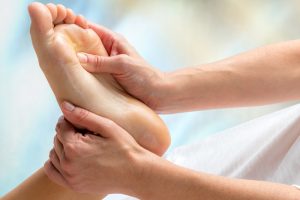
Erectile function is closely tied to overall cardiovascular health. In the same way, blood pressure, cholesterol levels, and circulation affect heart health, so does erectile dysfunction. This connection underscores why lifestyle modifications, including diet and exercise, are critical in ED treatment. The holistic approach to treating erectile dysfunction can enhance other treatments and sometimes eliminate symptoms without medication.
Impact of diet on erectile function
The proper diet is crucial for the functioning of our sexual organs. A diet that supports cardiovascular health and maintains healthy body weight significantly improves erectile function. Here’s how specific dietary choices can impact ED:
1. Heart-healthy foods
Foods that are good for your heart are also suitable for erectile function. These include:
- Fruits and vegetables – Antioxidants in these foods reduce inflammation and improve blood flow.
- Whole grains – They help lower cholesterol levels and improve circulation.
- Lean proteins – Fish, poultry, and plant-based proteins support overall health without the negative impacts of red meat.
- Healthy fats – Fish, nuts, and olive oil contain omega-3 fatty acids.
2. Specific nutrients for erectile health
Certain nutrients have been linked to improved erectile function:
- Nitrates – Nitrates are found in leafy greens and beets, and they can help improve blood flow.
- Flavonoids – In berries, citrus fruits, and red wine, flavonoids reduce the risk of erectile dysfunction.
- Zinc – This mineral in oysters, pumpkin seeds, and beef is crucial for testosterone production.
3. Foods to limit or avoid
Just as some foods help, others hinder erectile function:
- Processed foods – High in unhealthy fats and sodium, these impair cardiovascular health.
- Excessive alcohol – While moderate consumption may not be harmful, heavy drinking leads to both short-term and long-term ED.
- Sugar – High sugar intake contributes to obesity and diabetes, both risk factors for ED.
At the ED Clinic Englewood, nutritional counselling is often part of the treatment plan. Patients receive guidance on how to incorporate ED-friendly foods into their diet and which foods to limit for optimal sexual health.
Role of exercise in treating erectile dysfunction
Physical activity is essential in the management of erectile dysfunction. Exercise offers multiple benefits that directly and indirectly improve erectile function:
Improved cardiovascular health – In aerobic exercise, the heart and circulation are improved, which is crucial for achieving and maintaining erections. Activities that benefit erectile function include:
- Brisk walking
- Jogging
- Swimming
- Cycling
The Clinic recommends 150 minutes per week of moderate to vigorous aerobic exercise for optimal cardiovascular health.
Weight management – The best way to manage ED is to maintain a healthy weight. Excess weight contributes to erectile dysfunction, and losing weight improves sexual function. Maintaining a healthy weight requires exercise and a healthy diet.
Increased testosterone levels – Regular exercise, particularly strength training, can boost testosterone levels. The function of libido and erectile dysfunction depends on testosterone. The ED Clinic often incorporates resistance training recommendations into treatment plans, suggesting 2-3 weekly strength training sessions.
Reduced stress and improved mental health – Exercise is a powerful stress reducer and mood enhancer. Since psychological factors like stress and anxiety contribute to ED, the mental health benefits of exercise indirectly improve erectile function.
At the Clinic, healthcare providers recognize the importance of these lifestyle factors and integrate them into comprehensive treatment plans. Combining dietary and exercise interventions and appropriate medical treatments improves erectile function and quality of life in many men.


